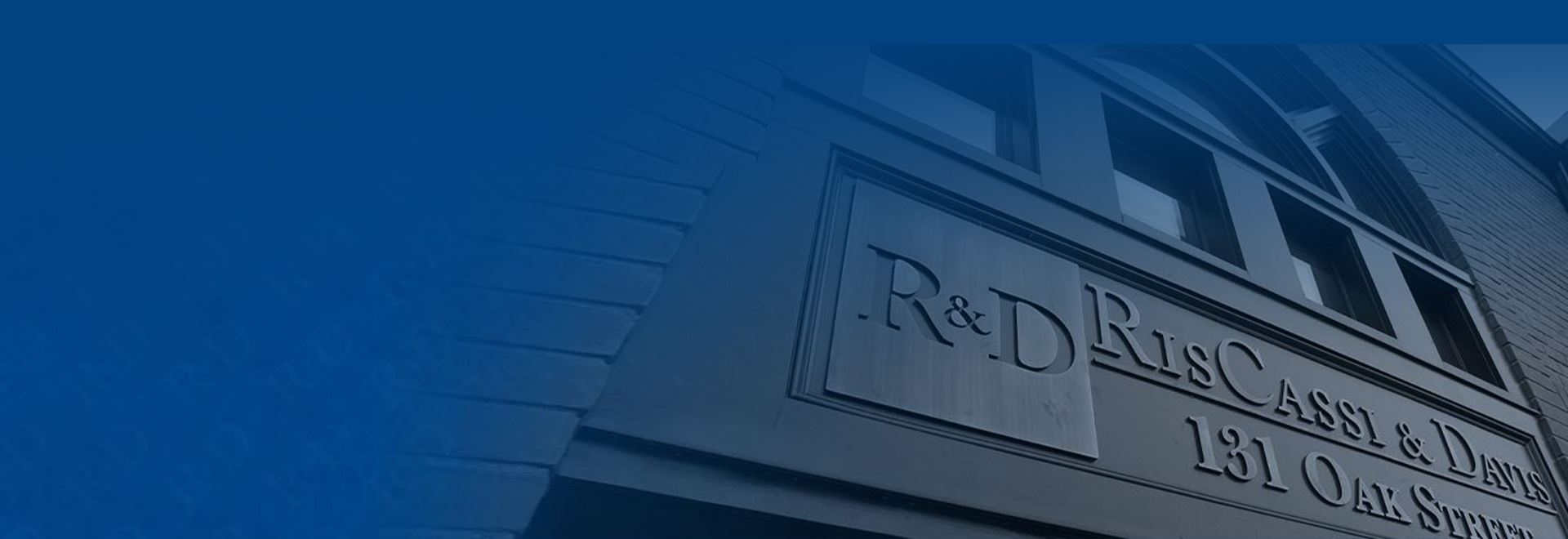After an accident that wasn't your fault, exploring options for compensation is essential. In Connecticut, there are two general categories of insurance claims: first-party claims and third-party claims. The team at RisCassi & Davis, P.C. explains more about each option.
Filing a First-Party Claim with Your Insurance Company
A first-party claim is an insurance claim filed with your own insurance company for compensation provided under an insurance policy you purchased. In Connecticut, types of first-party accident claims include property damage coverage and medical payments coverage, sometimes referred to as “medpay.” Medical payment coverage is optional in Connecticut, so it may not be available to you depending on the type of insurance policy you purchased.
Another important type of first-party insurance coverage in Connecticut is uninsured/underinsured motorist coverage. Uninsured/underinsured motorist coverage provides compensation for injuries sustained in a motor vehicle accident caused by: (1) an uninsured motorist, (2) an underinsured driver whose insurance coverage is insufficient to compensate you for the full extent of your injuries, or (3) a hit-and-run driver.
Legal issues surrounding uninsured/underinsured motorists can be a minefield and require the assistance of experienced legal counsel. RisCassi & Davis attorneys have you covered! One of our trial lawyers is the co-author of a book the Connecticut Supreme Court described as the "authoritative work on Connecticut's uninsured motorist law.” Colonial Penn Insurance Co. v. Bryant, 245 Conn. 710, 725 (1998).
Find out more about uninsured/underinsured motorist coverage here or contact us to speak with one of our trial lawyers.
Filing a Third-Party Claim with the At-Fault Driver's Insurance Company
Since 1994, Connecticut has been an “at-fault” state for automobile insurance. Under an “at-fault” insurance system, the driver who is responsible for causing an accident is legally responsible for the injuries and damages caused by that accident. Except for some of the examples discussed above, injured drivers and pedestrians cannot seek compensation from their own insurance companies. Instead, they can pursue a third-party claim against the at-fault driver — usually through their insurance company.
As a result of Connecticut’s “at-fault” system, proving who caused an accident is vitally important to pursuing a successful third-party negligence claim. Failure to prove liability for an accident will prevent an accident victim from receiving any compensation from the other driver’s insurance.
If the insurance company accepts responsibility for the accident, a claims adjuster will evaluate your losses (e.g. injuries, bills, lost wages, etc.) before making a settlement offer. Many cases settle without the need to file a lawsuit. However, if the at-fault driver’s insurance company refuses to make a fair and reasonable offer to compensate you for your injuries, filing a lawsuit will be necessary to force them to pay what you’re owed. That’s why it’s important to hire an experienced trial lawyer.
The Results You Need After an Accident
If you are injured in an accident and are considering seeking compensation, the team at RisCassi & Davis, P.C. is experienced in helping clients navigate the complexities of the Connecticut legal system. Let our attorneys help you make the best decision for your situation, whether it be a first-party or third-party claim in or out of court. Having represented Connecticut's injured for more than 65 years, RisCassi & Davis, P.C. can work to ensure you receive the justice and compensation that you deserve. Reach out so we can start working on your case — (860) 245-2412.

[2].2303031109550.jpg)